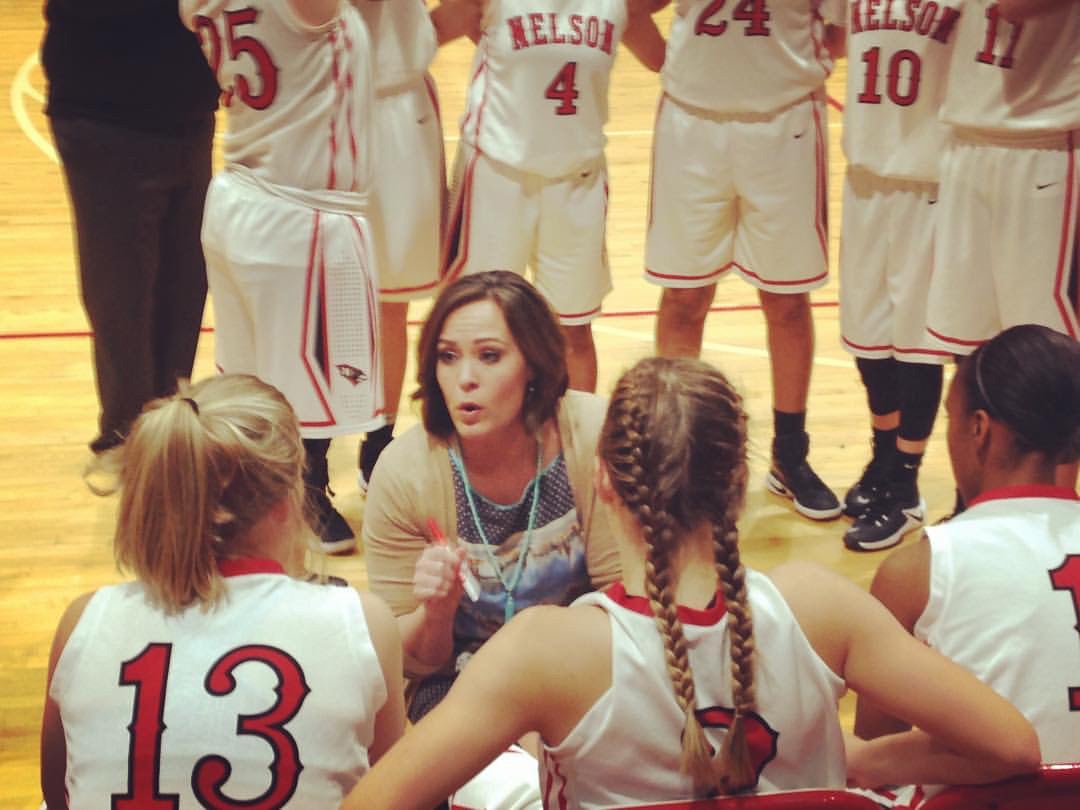Centre star Coleman applies experience to politics
Published 9:35 pm Friday, June 28, 2019

- Photo contributed Jacqueline Coleman is currently an assistant principal at Nelson County High School.
By LARRY VAUGHT
Contributing writer
Mercer County native Jacqueline Coleman has always had two dominant storylines in her family — politics and basketball.
“I could never be as talented as my grandfather in basketball. I never got the 6-8 genes. So I thought I would try coaching,” said Coleman. “My dad was an elected official, so I thought I will teach government.”
Her father, Jack Coleman, was a state representative in the 55th District from 1991 to 2004. Her grandfather, Jack Coleman Sr., played basketball at Louisville and then played nine seasons in the NBA (1949-58) with the Rochester Royals where he scored 6,721 points, grabbed 5,186 rebounds and played in three NBA Finals.
Now Jacqueline Coleman, a Burgin native, is running for lieutenant governor on the Democratic ticket with Andy Beshear and believes her sports background has helped prepare her for this challenge.
She played for three coaches at Mercer County High School and in 1999-2000 led the teaming scoring, field goals made, free throw percentage, and assists as a senior. She played for two coaches at Centre College and was the team’s most valuable player her senior season in 2003-04.
She was a graduate assistant coach at Louisville (she received a Master’s in political science) from 2005-07 and then started her high school coaching career at Burgin (she was also a civics teacher) before going to East Jessamine High School from 2008-15 where every player she coached went to college. She taught government there.
“The one thing I certainly learned through sports was resiliency. When you are playing, things never go the way you exactly want. You face adversity and thanks to great coaches like Chris Souder I learned to persevere,” Coleman said. “You learn to be flexible and how to work through a challenge. All those lessons helped shape me into the person I am now.
“I was so fortunate to go to Centre College (she was a history major with an emphasis on political science and secondary education) and Kentucky is fortunate to have that school in this state. Centre pushed me every day to get outside of my comfort zone (in academics). It was high pressure and tough but if not for the classroom experiences there, I would not be the person I am.”
As lieutenant governor, she knows she’ll have to be able to adapt to changes just like she did as a player and coach.
“Coaches always believed in me and put me in positions to lead. I don’t think I can overstate how important it is when you feel your leader believes in you. That belief changes the perspective you have of yourself. As a girl and athlete, that really helps. I never forgot that,” she said. “As a coach, I learned how to manage different personalities and that treating everyone fairly is not always treating everyone the same. Coaching all personality types and ability levels and molding them into a team playing for something bigger than itself, that is the foundation of basketball and life.
“Off the court, coaching gave me an opportunity to empower young women. I tried to instill all the lessons I learned from coaches into my players but always let them know I believed in them. Basketball cultivates leaders regardless of what field you pursue.”
Coleman eventually got out of coaching and worked one year as a specialist for the Kentucky Department of Education and currently is an assistant principal at Nelson County High School in Bardstown. In 2013 she founded Lead Kentucky, a non-profit to help prepare and encourage Kentucky’s college women to see leadership positions on campus in professional fields.
She’s ventured in politics before. In 2014 she ran for state representative but lost decisively to incumbent Kim King.
“I saw things educated related coming down the pike then that concerned me. Charter schools, pension system, school funding. No one was talking about them but you could see it coming,” Coleman said. “I was not successful but I continued to speak out for our profession and lobby officials.”
She calls civil discourse a “lost art” in today’s world. Coleman has friends and colleagues with different beliefs, but that doesn’t stop her from listening.
“Talking to them helps me understand different perspectives. Most of the time if you are willing to have a conversation you walk away with a different perspective and understanding of things,” Coleman said. “When you are in a campaign you meet and learn about challenges you never thought about in your own perspective. It expands my horizons.”






